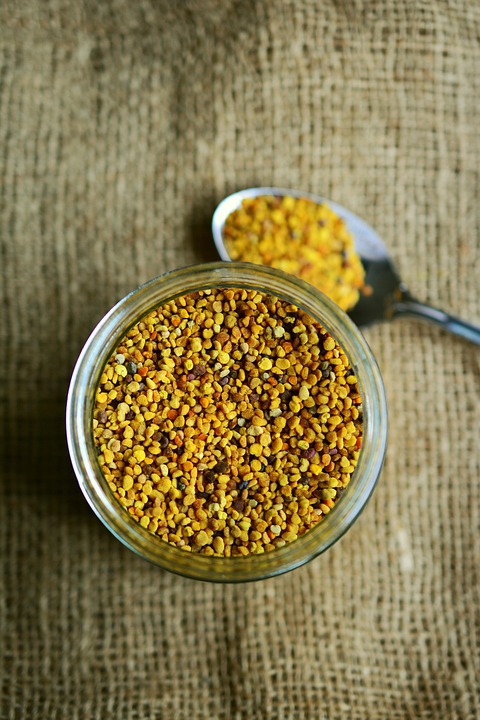Unlocking the Power of Nutritional Yeast: The Superfood You Didn’t Know You Needed!
Introduction
In the realm of superfoods, nutritional yeast often flies under the radar. While ingredients like kale, quinoa, and acai berry steal the spotlight, nutritional yeast quietly stands out as a nutritional powerhouse. This deactivated yeast, often listed as a vegan cheese substitute or sprinkled on popcorn, is packed with essential nutrients and potential health benefits. In this article, we will explore what nutritional yeast is, its nutritional profile, the myriad health benefits it offers, ways to incorporate it into your diet, and why it may become your new pantry staple.
What is Nutritional Yeast?
Nutritional yeast, or "nooch" as it’s lovingly referred to by its fans, is a deactivated yeast scientifically known as Saccharomyces cerevisiae. Unlike active yeast used in baking, nutritional yeast is inactive and does not ferment or bubble. It is typically sold in yellow flakes or powder form and carries a cheesy, nutty flavor that makes it a popular ingredient in vegan cooking.
Nutritional yeast is usually grown on molasses, which provides the yeast with the necessary nutrients to thrive. After fermentation, the yeast is heated to deactivate it, then dried and packaged for consumption. It can serve as a condiment, seasoning, or cooking ingredient, appealing to a variety of dietary preferences, particularly vegan and vegetarian diets.
Nutritional Profile
Vitamins and Minerals
Nutritional yeast is a rich source of several key vitamins and minerals:
-
B Vitamins: Nutritional yeast is particularly high in B vitamins such as B1 (thiamine), B2 (riboflavin), B3 (niacin), B5 (pantothenic acid), B6 (pyridoxine), B7 (biotin), and B12 (cobalamin) in fortified varieties. B vitamins play crucial roles in energy production, metabolism, and maintaining a healthy nervous system.
-
Protein: It contains all nine essential amino acids, making it a complete protein source. Each serving can provide anywhere from 8 to 14 grams of protein depending on the brand.
- Minerals: Nutritional yeast is also a good source of minerals such as zinc, magnesium, selenium, and iron, which contribute to various bodily functions from immune health to bone density.
Antioxidants
Moreover, nutritional yeast contains antioxidants such as glutathione and selenium, which help neutralize harmful free radicals in the body, potentially reducing the risk of chronic diseases.
Fiber
Though not a significant source, it contains some dietary fiber, which is beneficial for digestive health.
Health Benefits of Nutritional Yeast
1. Boosts Energy
With its high levels of B vitamins, nutritional yeast can be a natural energy booster. B vitamins are essential for metabolizing carbohydrates, fats, and proteins into energy, making nutritional yeast particularly valuable for anyone experiencing fatigue or low energy levels.
2. Supports Immune Health
The beta-glucans found in nutritional yeast may enhance immune response. Studies have shown that beta-glucans can stimulate the activity of immune cells like macrophages, helping to combat infections and diseases [1].
3. Promotes Healthy Skin, Hair, and Nails
The presence of B vitamins, particularly biotin, contributes to healthy skin, hair, and nails. Biotin supports keratin production, which is a vital protein for structuring hair and nails. It may also improve skin hydration and reduce dryness.
4. Aids Digestion
Although not a major source, the fiber present in nutritional yeast can assist digestion. It supports gut health and enhances the growth of beneficial gut bacteria.
5. Supports Brain Health
Nutritional yeast is rich in folate, which is essential for cognitive function. Folate aids in neurotransmitter production and can thus enhance mood and cognitive health. The presence of antioxidants also contributes to brain health by reducing oxidative stress.
6. Helps Manage Weight
Being low in calories yet high in nutrients makes nutritional yeast a great addition to a weight management program. It provides the feeling of fullness due to its protein content while limiting calorie intake.
7. Enhances Heart Health
Some studies suggest that the beta-glucans in nutritional yeast can lower cholesterol levels, contributing to cardiovascular health. They may also help regulate blood pressure [2].
How to Incorporate Nutritional Yeast into Your Diet
Incorporating nutritional yeast into your diet is simple and versatile. Here are a few ideas to get you started:
1. Sprinkle on Popcorn
For a cheesy flavor, drizzle some olive oil on freshly popped popcorn and sprinkle it with nutritional yeast. It adds a savory kick without the calories of traditional butter and cheese.
2. Use in Vegan Cheese Recipes
Nutritional yeast is a staple in many vegan cheese recipes. It can be blended with nuts, tofu, and spices to create a creamy and flavorful cheese alternative.
3. Stir into Soups and Stews
Adding a couple of tablespoons of nutritional yeast to soups and stews not only enhances nutrition but also adds a rich, hearty flavor.
4. Blend into Smoothies
While the cheesy flavor may seem odd for smoothies, nutritional yeast can blend well with certain flavors, contributing additional protein and nutrients. Pair it with nut butter and fruit for a balanced smoothie.
5. Toss with Pasta and Rice
Nutritional yeast makes a perfect topping for pasta and rice dishes, functioning as an excellent substitute for grated cheese.
6. Create Salad Dressings
Incorporate nutritional yeast into homemade salad dressings for an extra depth of flavor. A simple vinaigrette can be enhanced with a tablespoon or two for added nutrition.
Nutritional Yeast: Myths and Facts
Myth 1: Nutritional Yeast Causes Yeast Infections
Many people believe that consuming nutritional yeast can lead to yeast infections, but this is simply not true. Nutritional yeast is deactivated, meaning it doesn’t reproduce or cause infections.
Myth 2: All Nutritional Yeast is Fortified
While some brands fortify their nutritional yeast with B12, not all do. When choosing nutritional yeast, check the packaging to see if it includes B12, especially if you’re following a vegan diet, as this vitamin is primarily found in animal products.
Myth 3: Nutritional Yeast is a Fad Food
While it has gained popularity in recent years due to rising veganism, nutritional yeast has been used for nutritional supplementation and flavoring for decades. It is a staple food in many health-conscious communities.
Conclusion
Nutritional yeast is indeed a superfood that can enhance both your meals and your health. With its rich nutritional profile, potential health benefits, and versatility in the kitchen, it deserves a place in your pantry. Whether you’re vegan, vegetarian, or simply looking to boost your nutrition, nutritional yeast can be a game-changer.
Unlock the power of nutritional yeast today and discover the many delicious and nutritious ways to enjoy this remarkable ingredient!

























Add Comment